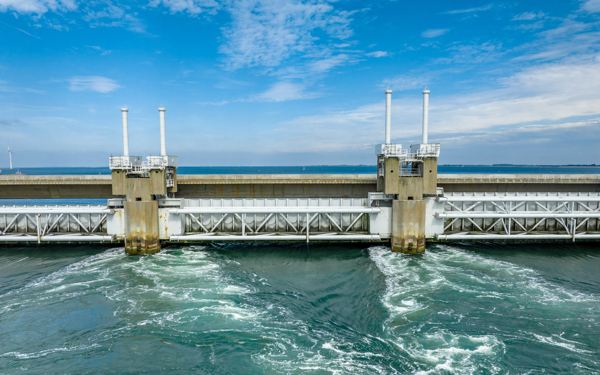De Nederlandsche Bank (DNB) has updated its “Supervisory Strategy 2021-2024”, fleshing out the priorities it had identified in 2018 in the areas of technological innovation, sustainability and financial crime. In particular, we have brought our ambitions into sharper focus, setting out what we, as a supervisor, expect from the financial institutions we supervise in the period ahead and what the sector can expect from us.
This emerged today at a digital press meeting led by our two Executive Directors of Supervision, Else Bos and Frank Elderson. They urged banks to take concrete action to ensure they can continue to resist the impact of the current crisis (see also our DNBulletin). While the COVID-19 crisis now requires a lot of attention from banks, pension funds and insurers, they face important structural challenges. Else Bos: “These challenges will not wait until the COVID-19 crisis is behind us. That demands a lot from the institutions and their people, as well as from us as the supervisory authority.”
Data are increasingly important
Not only is the financial sector grappling with the impact of the COVID-19 crisis, it is also facing challenges such as digitalisation, greening the economy and persistently low interest rates. Rapid technological developments mean that institutions not only need to review their business models, but also face new players from a technological background in their markets.
Data are of increasing importance in these trends. This is why we call institutions to account over their duty to have adequate safeguards for their data in place. They must ensure the quality of their data, in terms of completeness and integrity, but also in terms of robust security, for example to withstand cyberattacks. In addition, the privacy aspects of managing and using such data are important, especially if financial institutions increasingly use algorithms and artificial intelligence.
Data-driven working methods are also benefiting the quality and efficiency of our supervision. For example, the use of artificial intelligence allows us to gain a better understanding of an institution's risk profile. We collaborate with the institutions in the iForum. This is a platform on which we share knowledge and conduct experiments aimed, for example, at limiting the costs of indirect supervision and improving data quality in supervisory reports.
Sustainability risks warrant additional attention
Adequate management of sustainability risks by financial institutions requires even more of our attention. In recent years, we have studied how climate change, the energy transition and biodiversity loss can affect financial institutions. It is now up to them to embed the results into their policies and risk management, while we integrate them further into our supervision.
Stepping up the fight against financial crime
Financial institutions have further strengthened their gatekeeping role and invested in human and technological resources to keep criminals out of our financial system more effectively. There is still great scope for improvement, however. Over the coming years, we will monitor that financial institutions take more structural measures aimed at managing integrity risks and more effectively preventing financial crime. Both the sector participants and we can do so by, among other things, promoting initiatives for public-private partnership in crime prevention, and cooperating more closely across borders.
End of press release
For more information, please contact Tobias Oudejans by telephone at +31 20 524 3100 or +31 6 524 96 961
or +31 6 524 96 961 .
.




